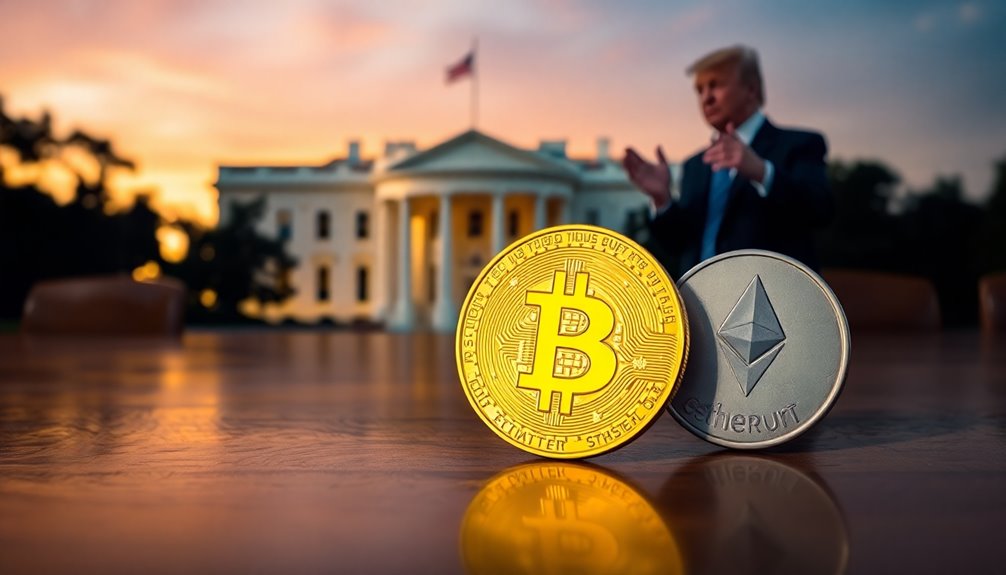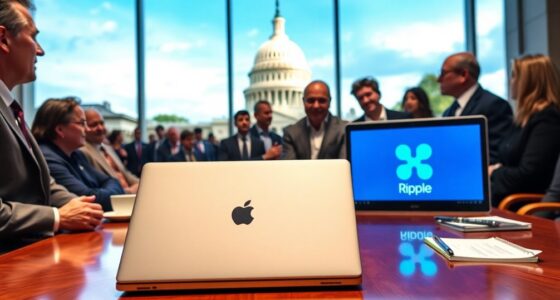Donald Trump's US Crypto Reserve initiative is making waves in the cryptocurrency market this week. With Bitcoin jumping 10% and Ethereum climbing nearly 13%, it's clear investors are responding positively. This initiative aims to weave major cryptocurrencies into the fabric of the US financial system, potentially changing the game. But how will this bold move affect regulatory efforts and the future of digital assets in the country? The implications could be far-reaching.

As the U.S. moves toward integrating cryptocurrencies into its financial system, Donald Trump's proposed US Crypto Reserve aims to position the nation at the forefront of digital asset adoption. This initiative seeks to hold major cryptocurrencies like Bitcoin, Ethereum, XRP, Solana, and Cardano in a manner akin to traditional gold reserves. By doing so, the US could strategically bolster its financial standing and credibility in the rapidly evolving digital asset landscape.
The announcement of the US Crypto Reserve didn't just generate buzz; it significantly impacted the market. Bitcoin jumped by 10%, Ethereum nearly 13%, XRP surged by 33%, Solana climbed 25%, and Cardano skyrocketed by 60%. These impressive gains reflect a renewed investor confidence in cryptocurrencies, signaling that many view the reserve as a stabilizing force in an otherwise volatile market.
The initiative not only aims to enhance the US's competitive edge in blockchain development but also holds potential consequences for global cryptocurrency regulations. The reserve is likely to consist of cryptocurrency seized from law enforcement activities, further illustrating the government's commitment to integrating digital assets.
To support this ambitious plan, an executive order established a working group that will shape the regulatory framework for digital assets. This Presidential Working Group on Digital Asset Markets is set to oversee the development of the reserve, which could ultimately influence crypto regulations worldwide.
Trump has openly criticized the current Biden administration's regulatory approach, labeling it as "corrupt attacks," and positioning his initiative as a more favorable alternative for fostering innovation and growth in the sector.
From an economic perspective, the US Crypto Reserve presents a unique opportunity for diversification. It could serve as a hedge against inflation, which becomes increasingly important in today's economic climate. A government-backed reserve could also stabilize the market, potentially reducing the extreme fluctuations that have characterized the crypto space.
Furthermore, by promoting mainstream adoption of digital assets, this initiative could contribute significantly to overall economic growth.
As Trump gears up for the 2024 presidential election, the US Crypto Reserve stands as a central campaign promise. His shift from skepticism to support for cryptocurrencies aims to establish the US as "the Crypto Capital of the World." This bold stance contrasts sharply with the regulatory-heavy approach of the Biden administration, and it could reshape the political landscape regarding digital finance.










